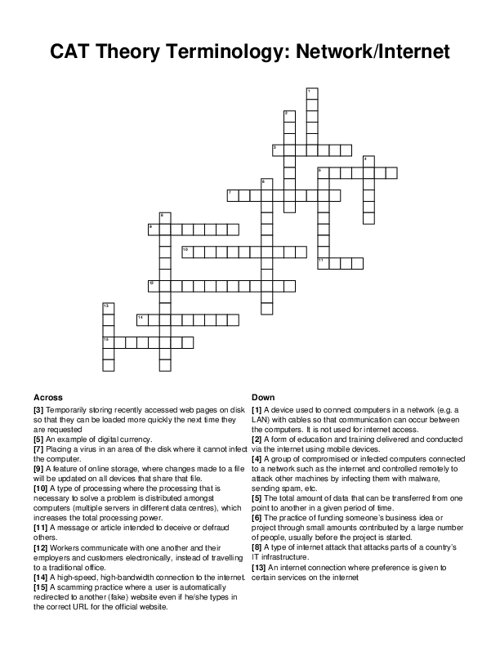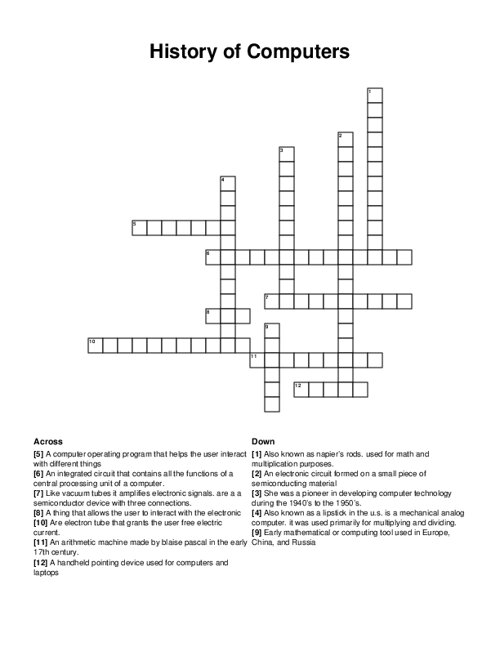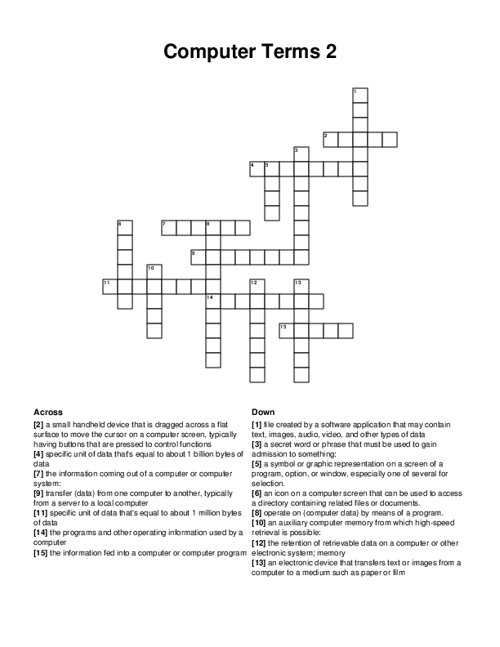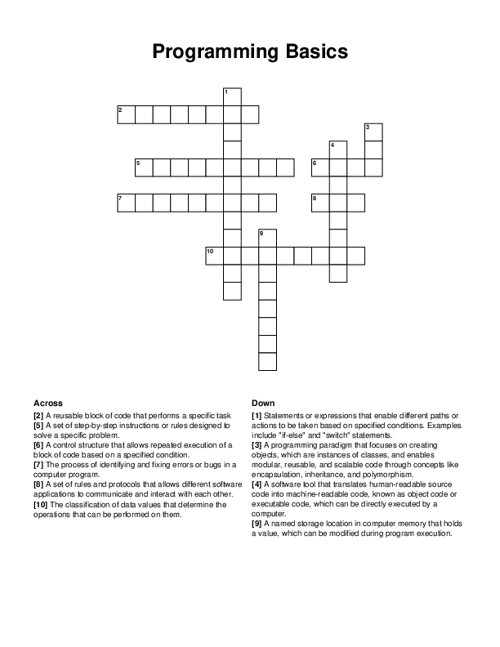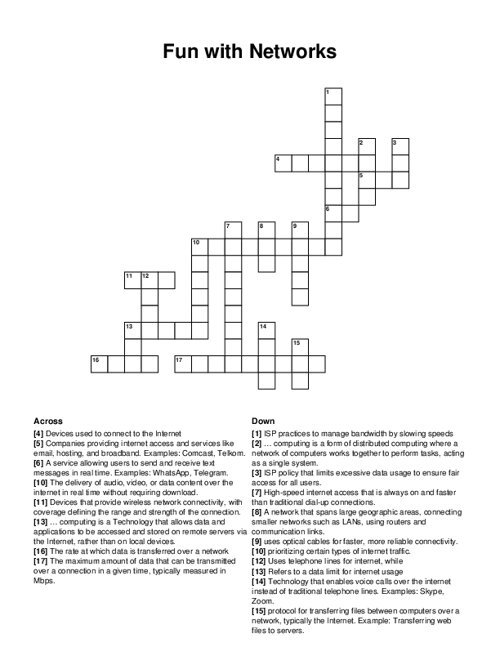CAT Theory Terminology: Network/Internet Crossword Puzzle
Download and print this CAT Theory Terminology: Network/Internet crossword puzzle.
Related puzzles:
Browse all Computers / IT Puzzles
QUESTIONS LIST:
- bandwidth : the total amount of data that can be transferred from one point to another in a given period of time.
- botnet : a group of compromised or infected computers connected to a network such as the internet and controlled remotely to attack other machines by infecting them with malware, sending spam, etc.
- broadband : a high-speed, high-bandwidth connection to the internet.
- caching : temporarily storing recently accessed web pages on disk so that they can be loaded more quickly the next time they are requested
- distributed : a type of processing where the processing that is necessary to solve a problem is distributed amongst computers (multiple servers in different data centres), which increases the total processing power.
- shaped : an internet connection where preference is given to certain services on the internet
- switch : a device used to connect computers in a network (e.g. a lan) with cables so that communication can occur between the computers. it is not used for internet access.
- synching : a feature of online storage, where changes made to a file will be updated on all devices that share that file.
- bitcoin : an example of digital currency.
- cyber terrorism : a type of internet attack that attacks parts of a country’s it infrastructure.
- crowdfunding : the practice of funding someone’s business idea or project through small amounts contributed by a large number of people, usually before the project is started.
- hoax : a message or article intended to deceive or defraud others.
- m learning : a form of education and training delivered and conducted via the internet using mobile devices.
- pharming : a scamming practice where a user is automatically redirected to another (fake) website even if he/she types in the correct url for the official website.
- quarantine : placing a virus in an area of the disk where it cannot infect the computer.
- telecommuting : workers communicate with one another and their employers and customers electronically, instead of travelling to a traditional office.
